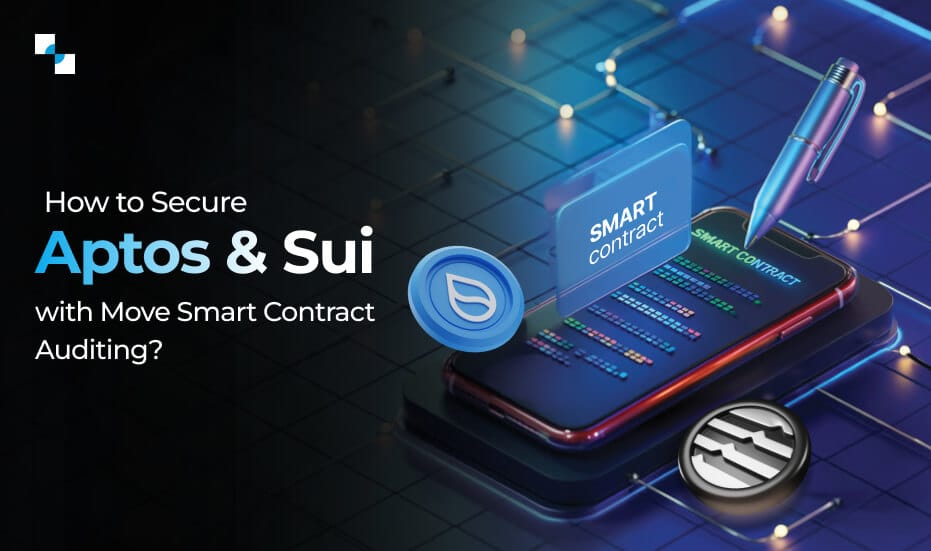Smart contracts represent a revolutionary aspect of blockchain technology, enabling users to engage in communication and transactions facilitated by an automated intermediary. Essentially, a smart contract is a self-executing piece of code designed to perform specific tasks that would traditionally require manual intervention.
The significance of smart contracts lies in their ability to introduce a trustless environment, a crucial element for the functioning of blockchains. Furthermore, the versatility of smart contracts extends to automating tasks and serving as a foundation for decentralized applications (DApps). Consequently, smart contract development is leveraged in the decentralized finance (DeFi) space to automate processes such as flash loans, standard loans, staking, and other innovative features.
Notably, many existing blockchain platforms possess the capability to support and execute smart contracts, emphasizing the widespread integration of this groundbreaking technology.
Smart Contract Development Platforms
1. Ethereum
Ethereum stands out as a decentralized platform designed for the execution of smart contracts. In contrast to Bitcoin’s Turing complete script system, Ethereum has introduced Turing complete languages, including Serpent, Solidity, Low-level Lisp-like Language (LLL), and Mutan, catering to the diverse needs of non-cryptocurrency applications.
Ethereum’s process involves the conversion of Solidity, Serpent, LLL, and Mutan smart contracts into machine code, subsequently loaded into the Ethereum Virtual Machine (EVM) for execution. Notably, Ethereum’s smart contract development adopts an account-based data format, wherein each participant is identified by their digital wallet.
2. Hyperledger Fabric
Hyperledger Fabric serves as a distributed ledger technology with the capability to execute smart contracts. Diverging from Ethereum’s approach of utilizing virtual machines (VMs) like the Ethereum Virtual Machine (EVM) for smart contract execution, Hyperledger Fabric employs Docker containers to execute code. Unlike VMs, containers facilitate smart contract applications with reduced costs while maintaining effective isolation—applications within a container operate atop a single operating system.
3. Corda
In contrast to Ethereum’s diverse applications, Corda is specifically designed for digital currency applications. Functioning as a distributed ledger platform, Corda focuses on storing and processing historical digital asset data. Corda’s smart contracts operate atop the Java Virtual Machine (JVM) and leverage high-level programming languages like Java and Kotlin. It is noteworthy that, for the sake of verifiability, Corda adopts a Turing incomplete approach. Additionally, Corda employs a transaction-based data model.
Corda is commonly employed to establish private platforms, allowing businesses to create secure networks for the exchange of digital assets. Corda employs the Raft consensus algorithm to facilitate this efficient consensus-building process.
4. Steller
Stellar serves as a dedicated platform for digital currency applications, akin to Corda. Positioned as a more straightforward and user-friendly cryptocurrency compared to Ethereum, Stellar stands out for its accessibility. Notably, Stellar exhibits versatility by supporting a variety of programming languages, including Python, JavaScript, Golang, and PHP.
Stellar supports smart contract development, but Stellar contracts operate within a non-Turing complete framework. A Stellar smart contract takes shape as a series of interconnected and executed transactions, employing various constraints. These contracts are meticulously crafted to facilitate the transmission, storage, and exchange of value within the Stellar network.
5. RootStock (RSK)
RSK operates as an overlay on the Bitcoin network, optimizing transaction processing speed. Notably, RSK has demonstrated the capability to confirm transactions in under 20 seconds, enhancing transaction efficiency. Additionally, RSK aligns with Ethereum standards, supporting Solidity for smart contract development. Rootstock’s smart contracts are Turing complete, and RSK has introduced its virtual machines dedicated to executing these contracts. Despite being a public blockchain system, RSK adheres to an account-based data model.
Comparing Smart Contract Development Platforms
Understanding the difference between smart contract development platforms helps make the right choice when opting for smart contract development services.
Execution Environment
The execution environment varies across blockchain platforms. Ethereum contracts are executed using the Ethereum Virtual Machine (EVM), while Corda and Rootstock utilize the Java Virtual Machine (JVM) and RSK virtual machines, respectively. On the contrary, Fabric and Stellar execute smart contracts on Docker containers, aiming to reduce overhead, although with a compromise on application separation.
Turing Completeness
Smart contracts on Ethereum, Fabric, and RSK exhibit Turing completeness, providing enhanced expressiveness. In contrast, Corda and Stellar feature Turing incomplete smart contracts. While Turing completeness offers greater expressiveness, it also introduces the risk of software defects becoming susceptible to malicious attacks.
Applications of Smart Contracts
Corda, Stellar, and RSK are exclusive in their support for digital currency, unlike Ethereum and Fabric, which offer a broader spectrum of applications, including digital currency, digital asset management, capital investment, government services, and the sharing economy. The future may witness Corda, Stellar, RSK, and their derivatives supporting more generic use cases.
Supported Languages
Smart contract development on Ethereum happens by using languages like Solidity, Serpent, and Mutan. Fabric supports Golang, while Corda employs Java and Kotlin. Stellar enables compatibility with a variety of languages, including Python, JavaScript, Golang, and PHP. RSK aligns itself with Solidity to ensure interoperability with Ethereum.
Permission
Ethereum and RSK operate as public, permissionless smart contract platforms, allowing anyone to join at any time. Corda and Hyperledger are private platforms, accessible only to authenticated users. Stellar, functioning as a consortium blockchain, bridges public and private blockchains across multiple corporate sectors.
Consensus Algorithms
Ethereum and RSK leverage Proof of Work (PoW), where block validation is akin to solving computationally challenging problems. Fabric employs Practical Byzantine Fault Tolerance (PBFT), a network-intensive consensus mechanism. Corda utilizes the Raft consensus mechanism for sector-specific consensus. Stellar employs the Simple Consensus Protocol (SCP) for arriving at consensus.
Importance of Smart Contract Development for Companies
The significant benefits offered by smart contracts have encouraged businesses to partner with an experienced smart contract development company to integrate smart contracts into their operations.
Greater Transparency
One of the most pressing challenges faced by companies is the lack of trust in dealings with third parties. Due to this distrust and the associated lack of transparency, organizations often approach agreements cautiously, investing considerable time and resources in intermediaries.
Smart contracts emerge as a solution to address this issue by eliminating the need for intermediaries when contract conditions are publicly visible. Leveraging blockchain technology, these contracts enhance trust and transparency between parties while allowing for the creation of immutable and easily accessible agreements.
More Efficiency
Smart contracts have the potential to significantly enhance efficiency across various industries. As this technology advances, more businesses are expected to adopt it to streamline processes, reduce costs, and facilitate swift and secure transactions.
Accelerated Processes
Traditional contracts, with their reliance on intermediaries and paperwork, often entail time-consuming finalization processes. In contrast, smart contract development offers quicker conclusions as smart contracts bypass the need for intermediaries. Additionally, the use of computer code in smart contracts minimizes the likelihood of manual errors during the drafting process.
Better Security
The decentralized structure of blockchain technology enhances transaction security. For instance, attempting to alter the dollar amount in a transaction would require hackers to control at least half of the blockchain’s computational power. While this does not make the system entirely impervious, it significantly raises the complexity of unauthorized interventions.
Get Obligation Free Quote
[widget id=”custom_html-3″]
Why Antier for Smart Contract Development?
At Antier, we have real-world experience building highly secure smart contracts for various business use cases. Our seasoned blockchain engineers offer customized smart contract development services – including smart contract development and smart contract audit. Whether you want to integrate a smart contract into your existing business operations or want to build an entirely new application backed by a smart contract, we can effectively cater to your needs.
Our commitment to world-class solutions coupled with our experience to create success stories has helped us emerge as a leading and trusted smart contract development company.
Connect with our subject matter experts to discuss your business use case.







